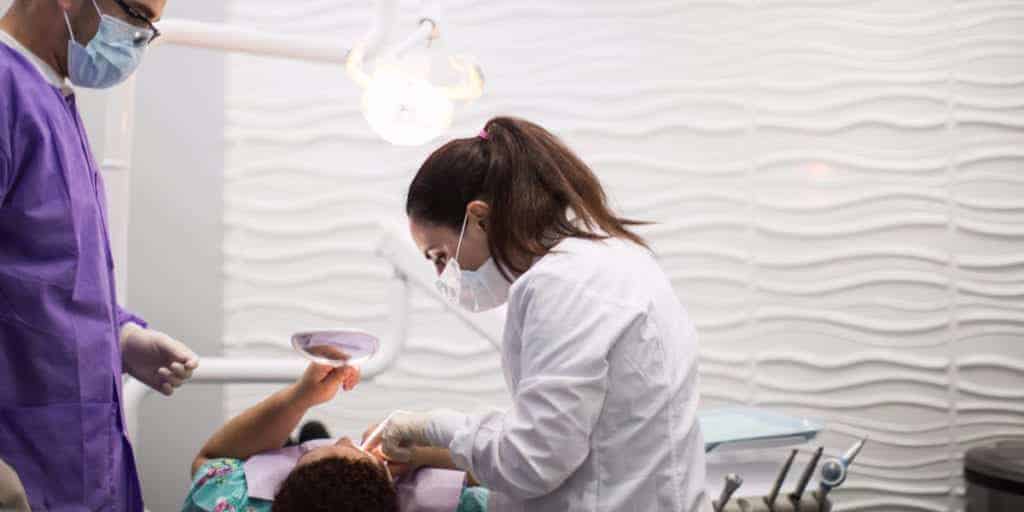Getting your wisdom tooth removed can spare you dental problems like overcrowded teeth or chronic infections. The benefits can last a lifetime, but there is a temporary recovery period after the procedure that you should be aware of.
How long is the recovery time and what can you do to make sure it goes by smoothly? Here we’ll explain everything you need to know about recovering from a wisdom tooth extraction.
What are the side effects of a wisdom tooth extraction?
As with any tooth extraction, there are going to be some uncomfortable symptoms as you recover. Wisdom teeth are large molars that are often partially erupted or impacted, which means there may be extra incisions made to fully extract the tooth.
If you have these kinds of teeth removed, expect your side effects to be more pronounced and give yourself more time for recovery. Here are the most common side effects associated with wisdom tooth extraction:
- Swelling
- Discomfort
- Difficulty chewing
- Bleeding (which should stop a few hours after the procedure)
- Pain
- Tenderness
The good news is that these symptoms should only be temporary. If you’re noticing that these side effects are lingering long after your tooth extraction, you should call your dentist right away.
Wisdom Tooth Removal
Wisdom teeth are known as your third molars. They often cause dental problems, therefore your dentist will usually recommend removing them.
Sometimes you don’t even have to wait for them to come out if they are projected to grow into your mouth sideways. X-rays and 3D scans can show their positions so your dentist can tell you the options you have about when and how to remove your teeth.
If you wait for your wisdom teeth to naturally grow out, it will happen during your late teens and early 20s. Some people don’t have any problems with their wisdom teeth, but many patients experience pain, overcrowding, and infections from wisdom teeth that simply don’t fit or grow in properly.
You’ll either go under general or local anesthesia during the tooth extraction. As the medicine wears off, you’ll start to feel the side effects of pain, swelling, and general discomfort. You’ll then be given prescription painkillers and strict dietary instructions to ensure a speedy recovery that’s free from complications.
Tips for Recovery
To recover fully, you’ll need to avoid certain foods for the first few days, like:
- Coffee
- Carbonated beverages
- Hot drinks
- Solid foods
- Alcohol
- Smoking of any kind
You should also take care to not drink any beverage with a straw. This can cause a condition known as “dry socket”, which happens when you dislodge the blood clot. This can set back your recovery a great deal. Dry socket is much more common in smokers also.
More Recovery Guidelines
The first day after recovery is when you’ll feel the most out of sorts. Your cheeks will be swollen and it will be hard to speak. You’ll have cotton gauze in your mouth to stop the bleeding. Here are some key tips to recovery:
- Don’t vigorously brush the area for 24 hours. You can brush the rest of our teeth normally.
- Don’t continuously spit or rinse your mouth for 24 hours.
- After the first day, rinse your mouth with salt water frequently to prevent infections.
- Take pain medication and use ice packs to relieve the swelling.
- Eat soft foods for the first two days, then graduate to semi-soft foods as the pain subsides.
- Notify your dentist if you see anything unusual like pus, increasing pain, discharge, or a fever. These are signs of an infection.
It generally takes 3-4 days to recover fully from a standard wisdom tooth extraction. When you’re recovering from an impacted or partially erupted wisdom tooth that required some incisions, you may have to wait a week to feel like yourself again.
If you’re employed with traditional working hours, getting the procedure done on a Friday afternoon will allow you to spend the first hardest days at home. If you’re still feeling pain after the weekend, try working from home or taking another day off to fully recover. Regardless of your work schedule, try to plan it to where you can get at least a couple days off in a row to heal during the most delicate time after the procedure.
Get the Best Dental Care in Los Angeles
Making life adjustments for a few days to a week can seem daunting, but avoiding irritating foods and taking it easy is key to not dislodge the blood clots are where your wisdom teeth once were. Curl up with some good movies and try to enjoy your downtime. When you start to feel better, you can ease yourself back into your normal routine. To find out more about wisdom tooth extraction and recovery, contact us.
